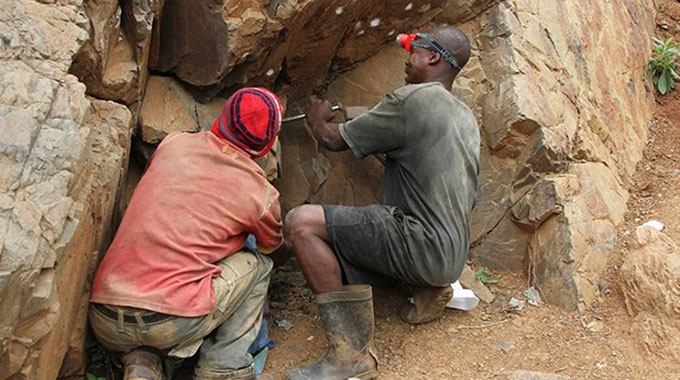Budget: Addressing climate change by other means

Climate Story Jeffrey Gogo
Finance Minister Mthuli Ncube’s maiden National Budget speech is undoubtedly the hottest topic in town. Likewise, those in the climate change sector have followed with keen interest Professor Ncube’s fiscal plans as regards the climate industry.
However, the Budget was silent on specific climate interventions, at least as far as describing anything in absolute climate change terms. The Finance Minister, nevertheless, announced certain proposals that could have a bearing on climate change adaptation and mitigation. Call it tackling climate change by proxy.
He also revealed plans to slow down environmental degradation in areas like mining and forestry, industries that are both key to either stabilising or fuelling local and global temperature increases, if carbon emissions in the sectors aren’t kept at bay.
Mr Ncube spoke about boosting irrigation development as well as continuing to build new dams to help grow output in agriculture, the economy’s lifeblood, but also an industry that is extremely vulnerable to climate change.
Irrigation is viewed as a key defence against climate change-induced rain shortages.
We already know that public spending on climate change and related issues is guaranteed under the $989 million that Professor Ncube allocated to the Ministry of Lands, Agriculture, Water, Climate and Rural Resettlement, even though its not yet clear exactly how much will go towards the sector.
We are aware though, that the Budget spoke strongly about curbing forest loss – measured at between 100 000 and 320 000 hectares each year – wetlands destruction, illegal killings of wild animals as well as improving solid waste management.
“The Budget, therefore, continues to capacitate local authorities and the Environmental Management Agency to manage pollution, waste and deforestation,” said Professor Ncube.
Zimbabweans in towns and cities produce an average 2 356 tonnes of garbage everyday or 859 940 per year – enough waste to fill the entire surface area of seven football pitches – according of the World Bank.
Much of the waste is collected and disposed in landfills, dumpsites, recycled or is dumped illegally. The whole process produces greenhouse gases at every stage – from the carbon generated by vehicles collecting garbage to the methane generated at landfills and dumpsites.
“The Forestry Commission will now de-centralise issuance of tree cutting permits, while EMA will work closely with traditional leaders to enforce the proper management of forests and pasture lands countrywide,” detailed the Finance Minister.
Starting in January, the Forestry Commission, a statutory body that oversees Zimbabwe’s 15,6 million hectares of natural woodlands and other plantation activities, will get an equal share from a levy paid by tobacco farmers to their industry regulator, the TIMB, the Budget stated.
This is ostensibly designed to help shore up the Commission’s coffers for afforestation projects that specifically target one of Zimbabwe’s biggest culprit sectors for driving deforestation – tobacco.
Tobacco growers, particularly the 80 000 strong small-scale farmers, are responsible for decimating about a fifth of the country’s forests each year, curing their tobacco leaf.
After cholera killed dozens of people in the last few months, in his Budget statement, Minister Ncube announced plans to ring fence finances from the Environment Fund – a fund that until now remains something on paper, without capitalisation – to prevent, or in the least, effectively control future outbreaks.
He said: “Government will also revitalise the Environment Fund which can be used to contain water pollution and solid waste management.
“To avert outbreaks like cholera and typhoid in the future the Environment Fund will act as an early warning signal and assist local authorities and communities in disaster management.”
No loans for environmental offenders
Unsustainable mining methods that are used by small scale and artisanal miners also cause damage to public infrastructure and in some cases violates rights of other land holders such as farmers, Professor Ncube explained.
He is now going to attach environmental protection strings to Government loans handed-out to small and artisanal miners.
“Without criminalising the small scale and artisanal miners, the 2019 Budget seeks to embrace interventions to reduce environmental, social and health impact that arise from artisanal and small scale mining operations,” he stated.
“As such, the Mining Loan Fund, as a key funding tool to primary and small scale producers, will embrace a component for a better and sustainable mining methods. In addition, Government is engaging Fidelity Printers and Refiners to come up with a mechanism that compels recipients of other loans to rehabilitate the environment.”
Minister Ncube also detailed plans to strengthen the Zimbabwe Parks and Wildlife Authority to prevent poaching of the country’s iconic wildlife animal species like elephant and rhino while preserving their habitat.
He said: “Government is, therefore, strengthening institutions related to the wildlife industry such as Zim Parks, to deal with rogue operators who continue to bring the industry into disrepute internationally.
“Individual farmers with low capacity for cropping especially in the southern regions can engage in wildfire ranching.
“These farmers will be assisted by Government to form joint ventures with private sector on wildlife projects.”
Both climate change and the environment have often been viewed by governments worldwide as a soft topic, something that can always be relegated to the backwaters of budgetary priorities to accommodate perceived urgent, pressing matters.
But climate change’s close linkages to agriculture, a very important sector of the Zimbabwean economy, means the science can no longer be easily tucked away to future consideration.
Like his predecessors before him, Minister Ncube attempted to address climate change by tackling inefficiences in other sectors that are linked to climate change. You could say he addressed climate change by other means.
All the same, the end will justify the means. But it could never be said that he did enough.
God is faithful.











Comments